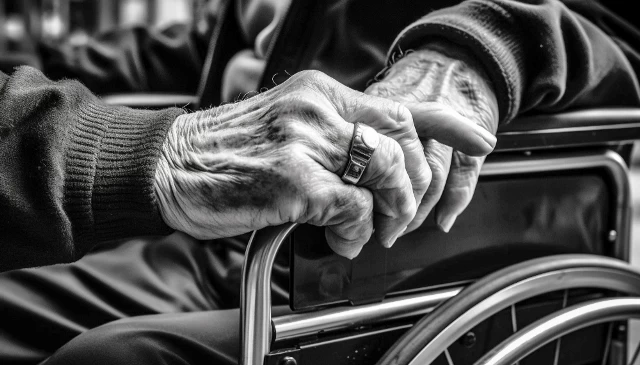
Parkinson's Disease
- Parkinson's Disease
- What Is Parkinson's Disease?
- Symptoms of Parkinson's Disease
- Causes of Parkinson's Disease
- Treatment of Parkinson's Disease
- Recommendations for Families of Parkinson's Patients
What Is Parkinson's Disease?
Parkinson's disease is a neurodegenerative disorder that typically results from a decrease or loss of dopamine production in a region of the brain known as the substantia nigra, which is responsible for controlling movements. Parkinson's disease can significantly affect the quality of life and has a progressive course. In this article, I will explain Parkinson's disease and provide recommendations for families dealing with it.
Symptoms of Parkinson's Disease
Parkinson's disease usually occurs in individuals over the age of 60, but it can also manifest in younger individuals. The symptoms of the disease can vary from person to person, but they generally include the following:
- Tremor: Tremors, particularly in the hands and fingers, are common and can lead to shaking even when at rest. This tremor may worsen over time.
- Muscle Rigidity: There is a feeling of stiffness and tension in the muscles, especially in the neck, shoulders, and back.
- Bradykinesia: Movements become slower, and individuals may struggle with daily activities.
- Balance and Coordination Issues: Individuals with Parkinson's disease may experience balance problems and an increased risk of falling.
- Mask-like Face: Stiffness in the facial muscles can result in a lack of facial expression.
- Speech Problems: Speech may become slower and more difficult to understand.
- Handwriting Difficulties: Handwriting may become smaller and harder to read.
- Depression and Anxiety: Parkinson's disease often leads to emotional issues and an increased risk of depression and anxiety.
Causes of Parkinson's Disease
The exact causes of Parkinson's disease are not fully understood, but it is believed to result from a combination of genetic and environmental factors. While some families may have a genetic predisposition, most cases of Parkinson's disease are sporadic and cannot be directly linked to genetic factors.

Treatment of Parkinson's Disease
The treatment of Parkinson's disease aims to alleviate symptoms. Common treatment methods include:
- Medications: Drugs such as levodopa and dopamine agonists are used to increase dopamine levels and help control symptoms.
- Physical Therapy: Physical therapy exercises can reduce muscle rigidity and improve mobility.
- Surgical Interventions: Surgical procedures like Deep Brain Stimulation (DBS) can assist in controlling symptoms.
- Speech and Physical Therapy: Speech therapy and physical therapy can help improve communication skills and mobility.
- Lifestyle Changes: A healthy lifestyle plays a crucial role in managing symptoms. Regular exercise, balanced nutrition, and stress management are recommended.
Recommendations for Families of Parkinson's Patients
Parkinson's disease affects not only the patient but also the entire family. Family members play a vital role in understanding the patient's symptoms, providing support, and coping with the situation effectively. Here are some recommendations for families of Parkinson's patients:
- Education and Information: Understanding Parkinson's disease, its causes, and treatment options can empower family members to cope more effectively. Seeking information from a neurology specialist and reliable sources is essential.
- Empathy and Patience: Parkinson's disease symptoms can make daily life challenging and lead to frustration and anxiety. Family members should be patient, sensitive to the emotional needs of the patient, and practice empathy.
- Participation in Support Groups: Joining support groups for both patients and family members can be highly beneficial in coping with Parkinson's disease. These groups provide connections with others who share similar experiences and offer valuable information.
- Implementing Daily Life Aids: Practical measures can be taken to make daily life at home easier. Safety measures such as handrails on stairs or non-slip floor coverings can be installed. Adjusting furniture and home arrangements to accommodate the patient's needs can also be helpful.
- Communication: Open communication is crucial. Discussing the patient's needs and making treatment decisions together can strengthen family relationships.
- Personal Care: Be prepared to assist with personal care when needed. If necessary, consider collaborating with a professional caregiver.
- Hobbies and Social Activities: Engaging in social and enjoyable activities is important for both the patient and family members. These activities can reduce stress and boost morale.
- Supporting Treatment: Ensure the patient attends medical appointments, takes medications regularly, and follows an exercise program. Adherence to treatment is critical in managing the disease.
- Emotional Support: Both the patient and family members can benefit from psychological support. Counseling or therapy can be helpful during this process.
Remember that Parkinson's disease can be managed with the support and love of family members. By supporting the patient, you can improve their quality of life and help them lead a more independent life.
Living with Parkinson's disease can be challenging, but with a multidisciplinary approach, symptoms can be managed, and quality of life can be enhanced. With medical treatment and family support, individuals with Parkinson's can lead active and independent lives.
Wishing you all good health...

Dr. Dilek KASIM YÜCEL
Neurology Specialist


